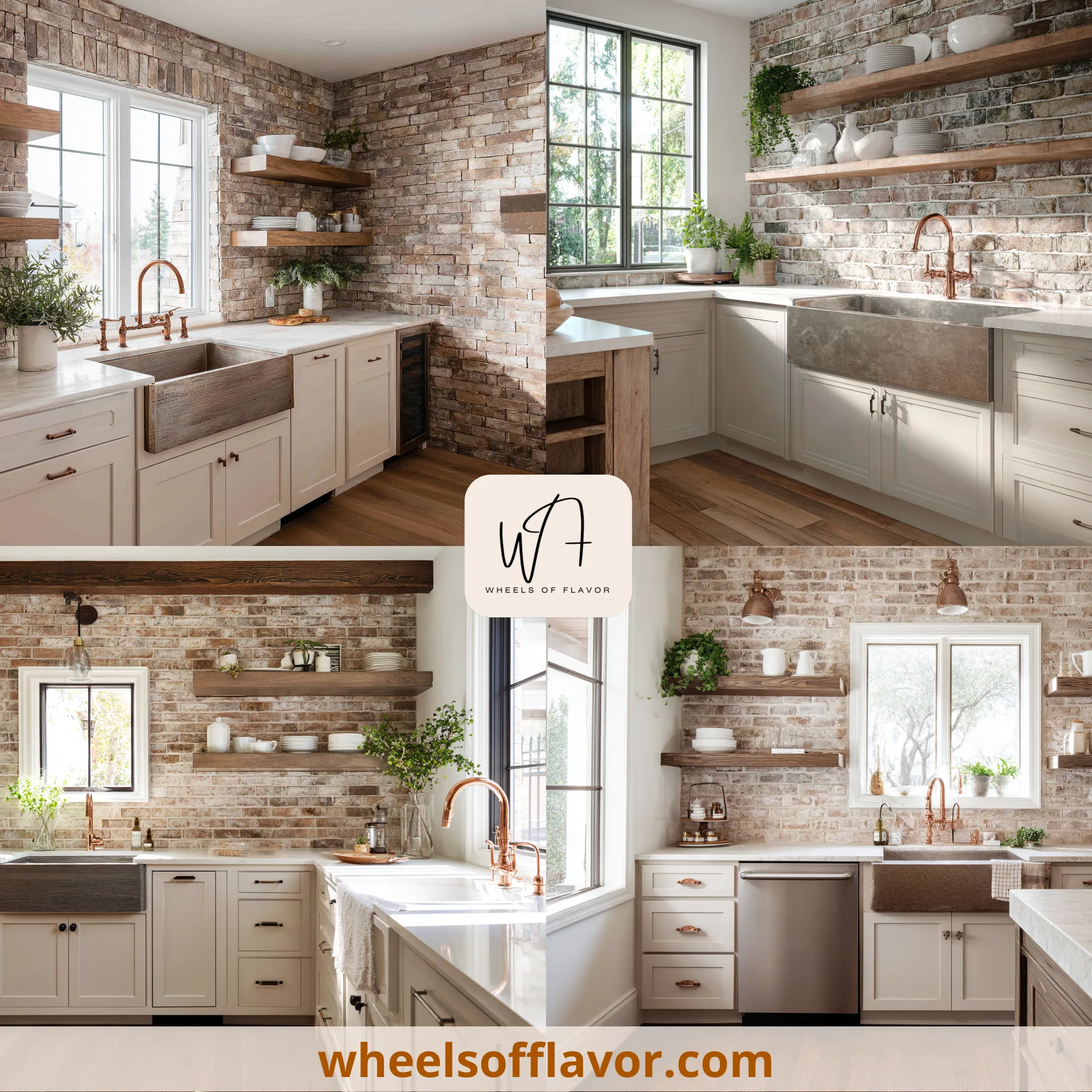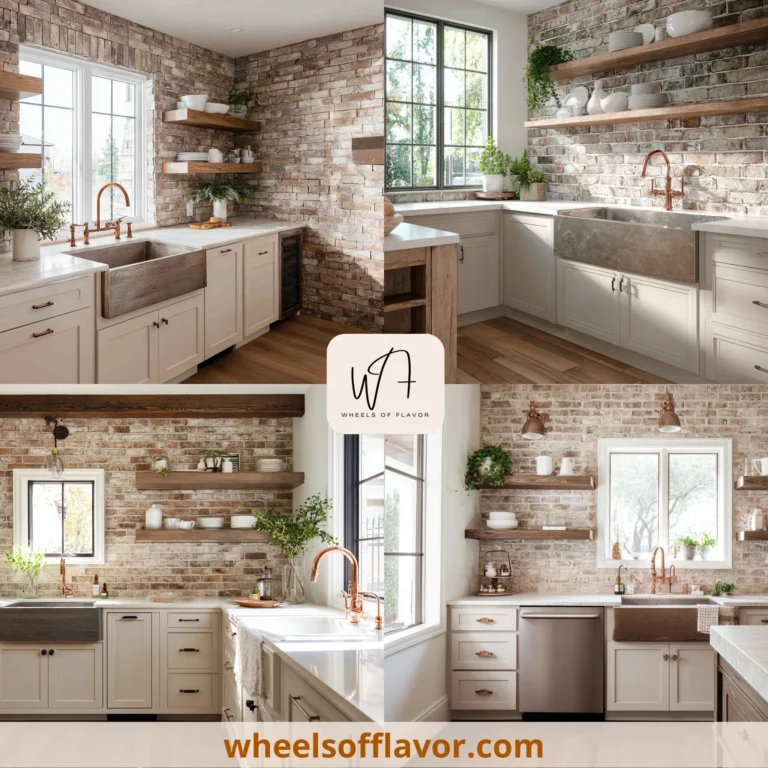
The farmhouse kitchen backsplash brick is more than just a protective barrier against splashes and spills; it’s a statement piece that brings warmth, texture, and timeless charm to your kitchen. In recent years, the farmhouse style has seen a resurgence, with homeowners seeking to blend rustic elegance with modern functionality. A brick backsplash serves as the perfect canvas to achieve this look, offering a durable and aesthetically pleasing solution. Whether you’re renovating your kitchen or simply looking to update its style, incorporating a brick backsplash can transform your space into a cozy, inviting hub of the home. This article explores the beauty and practicality of farmhouse kitchen backsplash bricks, providing inspiration and practical tips for your next project.
Why Choose a Farmhouse Kitchen Backsplash Brick
A farmhouse kitchen backsplash brick offers a unique combination of durability, beauty, and versatility. Unlike traditional tiles, brick brings a rugged, earthy texture that adds depth and character to your kitchen. It's incredibly durable, standing up to heat, moisture, and daily wear and tear with ease. Additionally, brick backsplashes are highly customizable; they can be painted, whitewashed, or left in their natural state to match your kitchen's aesthetic. The timeless appeal of brick ensures that your kitchen remains stylish and relevant, regardless of changing trends. For more inspiration on farmhouse decor, check out this high-authority blog on modern farmhouse designs.
Design Ideas for Your Farmhouse Kitchen Backsplash Brick
When it comes to designing your farmhouse kitchen backsplash brick, the possibilities are endless. Consider a classic red brick for a traditional look, or opt for whitewashed bricks to brighten the space and create a more modern feel. For a touch of elegance, herringbone or basketweave patterns can add visual interest. Don't shy away from mixing materials; combining brick with subway tiles or wood accents can create a dynamic and layered look. Remember, the key to a successful farmhouse kitchen is balancing rustic elements with clean, functional design. Explore more room-specific decor ideas at https://wheelsofflavor.com/.
Installation Tips for a Brick Backsplash
Installing a brick backsplash in your farmhouse kitchen can be a DIY project or a job for professionals, depending on your skill level and the complexity of the design. Start by preparing the wall surface, ensuring it's clean and smooth. Thin brick veneers are a popular choice for backsplashes, as they're lighter and easier to work with than full-sized bricks. Use a high-quality adhesive suitable for your kitchen's conditions, and consider sealing the brick to protect against stains and moisture. Proper spacing and alignment are crucial for a polished look, so take your time during installation. For those unsure about tackling this project themselves, consulting with a professional can ensure a flawless finish.
Conclusion
Incorporating a farmhouse kitchen backsplash brick into your home is a fantastic way to add character, warmth, and timeless style to your kitchen. Whether you prefer the rustic charm of natural brick or the sleek appearance of whitewashed finishes, this design element can significantly enhance your space's aesthetic and functionality. As farmhouse decor continues to evolve, the versatility of brick ensures it remains a favorite among homeowners and designers alike. Looking ahead, we can expect to see even more innovative uses of brick in kitchen design, from bold patterns to unexpected color treatments. Start planning your farmhouse kitchen backsplash brick project today, and create a space that's as inviting as it is beautiful.
Frequently Asked Questions
Q: Can I install a brick backsplash over existing tile?
Yes, you can install a brick backsplash over existing tile, but the surface must be properly prepared. Ensure the tile is clean, dry, and free of any wax or grease. You may need to sand the tile to create a rough surface for the adhesive to bond effectively. Consulting with a professional can help determine the best approach for your specific situation.
Q: How do I clean and maintain a brick backsplash?
Brick backsplashes are relatively low-maintenance but should be sealed to protect against stains and moisture. For daily cleaning, use a soft brush or cloth with mild soap and water. Avoid harsh chemicals or abrasive cleaners, as they can damage the brick's surface. Reapplying sealant every few years will keep your backsplash looking its best.
Q: Are there lightweight options for brick backsplashes?
Yes, thin brick veneers are an excellent lightweight alternative to traditional bricks. They offer the same aesthetic appeal but are easier to install and place less stress on your walls. Veneers come in various colors and finishes, allowing for customization to match your farmhouse kitchen's style.

